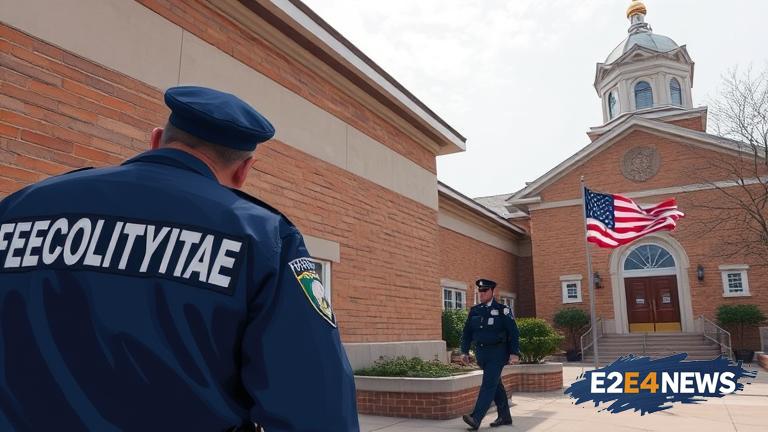The US government has been providing federal security grants to synagogues and other religious institutions to enhance their security measures. However, recent developments have sparked concerns among the Jewish community that these grants may come with a condition: cooperation with Immigration and Customs Enforcement (ICE). This potential requirement has raised eyebrows, with many synagogues expressing reluctance to comply. The grants, which are administered by the Department of Homeland Security, are intended to support the implementation of security measures such as cameras, alarms, and training for staff and volunteers. While the grants have been instrumental in helping synagogues improve their security, the possibility of being forced to cooperate with ICE has created a sense of unease. Many synagogues have historically been sanctuaries for immigrants and refugees, and the idea of collaborating with an agency responsible for deporting undocumented immigrants is unpalatable to them. The Jewish community has a long history of advocating for social justice and protecting the rights of marginalized groups, including immigrants. As such, the prospect of being compelled to work with ICE is seen as a betrayal of these values. Furthermore, synagogues are concerned that cooperating with ICE could damage their relationships with their local communities, particularly those with large immigrant populations. The potential consequences of such a requirement are far-reaching, with some synagogues worrying that it could lead to a loss of trust and credibility. In addition, there are concerns that the grants may be used as a means of exerting pressure on synagogues to comply with ICE’s demands. The Jewish community is not alone in its concerns, as other religious groups and organizations have also expressed opposition to the potential requirement. The issue has sparked a heated debate, with some arguing that the grants should be accepted without condition, while others believe that the risks associated with cooperating with ICE outweigh any potential benefits. As the situation continues to unfold, synagogues are being forced to weigh their options carefully, considering the potential consequences of their decisions. The US government has yet to provide clarity on the matter, leaving synagogues in a state of limbo. In the meantime, the Jewish community is coming together to voice its concerns and advocate for a solution that respects the values of social justice and compassion. The incident has highlighted the complex and often fraught relationship between religious institutions and government agencies, particularly when it comes to issues of immigration and national security. As the debate rages on, one thing is clear: the Jewish community will not compromise its values and principles, even in the face of uncertainty and adversity. The grants, while welcome, are not worth the cost of compromising the community’s integrity and commitment to social justice. Ultimately, the decision to accept or reject the grants will depend on the individual synagogues, but one thing is certain: the Jewish community will continue to advocate for the rights and dignity of all individuals, regardless of their immigration status. The controversy surrounding the federal security grants has sparked a wider conversation about the role of religious institutions in promoting social justice and protecting the rights of marginalized groups. As the US government continues to grapple with issues of immigration and national security, the Jewish community remains committed to its values of compassion, empathy, and justice. The incident has also highlighted the importance of transparency and accountability in government funding, particularly when it comes to grants that may be used to further political agendas. In conclusion, the potential requirement for synagogues to cooperate with ICE in exchange for federal security grants has sparked a heated debate within the Jewish community, with many expressing concerns about the implications of such a condition. As the situation continues to unfold, one thing is clear: the Jewish community will not compromise its values and principles, even in the face of uncertainty and adversity.





